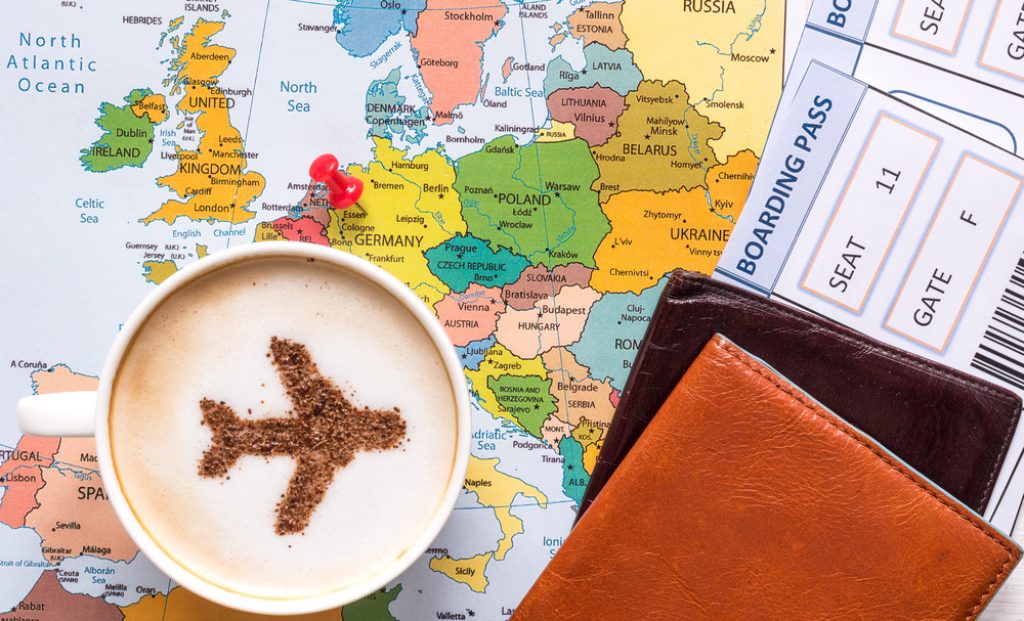Brits looking to secure a getaway in January should be vigilant of booking scams on social media, Nationwide Building Society urges.
The warning comes as four in ten Brits book a holiday in January, but nearly six in ten people are unaware of how to check if a travel agent is legitimate or not.
As well as having a blind spot for bookings, a third (32%) of holidaymakers would also rush into booking a trip away without thoroughly checking the travel company. According to Action Fraud, between April 2022 and April 2023, holiday scam victims lost £15 million – double the amount of the previous year.
One popular con involves criminals adding fake ads on holiday websites appearing to be a booking agent from a legitimate company.
Fraudsters will then try to veer customers away from the genuine holiday websites and push a bank transfer to an individual, rather than a company.
Bank transfer request should spark concern
Nationwide suggests always booking a holiday using a credit card or debit card and avoiding doing bank transfers to any travel agent or company. This payment option comes with less protection against scammers.
It suggests customers take advantage of its scam checker service which acts as a safety blanket against any fraudulent booking companies. After using the service, if a payment goes ahead, customers will be fully reimbursed, unless a Nationwide colleague tells them not to progress.
Another hotbed for scams of this nature is on social media, with one in seven (14%) of Nationwide’s 2,000 respondents using platforms like Facebook Marketplace to search for a holiday. A total of 20% also received direct messages from potential fraudsters flogging a holiday.
Concerns about being scammed are most rife when it comes to booking accommodation (34%), choosing excursions (15%) and the travel to get to and from the destination (12%).
‘Do your research when booking a holiday
Jim Winters, a director at Nationwide, said: “January is primetime for booking holidays as we want something to look forward to – whether time in the sun or snow. However, that age-old adage of ‘if it looks too good to be true, it probably is’ most certainly applies with holidays – do your research and if in doubt get support.
“Our Scam Checker Service is completely free and for the sake of a few minutes on the telephone, it could mean you’re not getting conned out of your hard-earned money and deserved time away.”
The mutual provided seven tips to consider when booking a holiday.
Seven tips to dodge holiday booking scams
- Try to book directly with established hotels or ABTA or ATOL-protected companies.
If you book through a travel agent or broker, make sure they’re protected by the ABTA (Association of British Travel Agents) or ATOL (Air Travel Organiser’s Licence). This is a clear sign they’re legitimate. If you book independently, check if you’re dealing with the property owner, a letting agent or the local tourist information desk. This will be useful if anything goes wrong with your booking.
- Only use secure payment methods.
If you’re asked to make a bank transfer outside a website, this is likely to be a scam. Always use a secure card payment. If possible, use a credit card when making purchases that cost over £100 and up to £30,000 (even if you only pay part of it on your credit card). You’ll be protected under Section 75 of the Consumer Credit Act.
- Beware of really cheap holiday offers.
Don’t be lured in by prices that are significantly lower than elsewhere.
- Research thoroughly before buying your holiday.
Search for reviews of the website or person online using websites like Trustpilot. Some other quick checks are that the website begins with ‘https’ and that there’s a padlock in the website address bar. If you’re given an address for the holiday let, check it exists using Google Maps.
- Look into what checks have been made on the accommodation.
When booking accommodation through a travel agent, ask what checks they make on the landlord and the accommodation.
- Pay attention to the terms and conditions
Ensure you read through all the small print before making any bookings to confirm exactly what you’re being sold. Double-check both your travel and accommodation information, particularly if there is a long gap between making the booking and arrival.
- Take extra care with timeshare schemes
As well as paying close attention to the terms and conditions, you may also want to consult a solicitor before buying. And remember to never feel rushed into anything.





